Fritextsökning
Artiklar per år
Innehållstyper
-
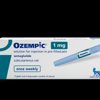
Misstänkt koppling mellan Ozempic och ögonsjukdom – myndighet reagerar
Två nya danska studier har pekat på en koppling mellan Ozempic (semaglutid) och en möjlig risk för den sällsynta ögonsjukdomen NAION. Nu vill danska läkemedelsverket att europeiska riskbedömningskommittén för läkemedel bedömer studierna.
-

Lilly recruits top Swedish researcher in Alzheimer´s
One of Sweden's leading Alzheimer's researchers, Oskar Hansson, has been recruited by pharma giant Eli Lilly and will be moving to the USA.
-

600 million SEK for life science - "Should not be the country of moderation"
Sweden will prioritize excellence over breadth in research. This was made clear when the government presented the research proposition for the next four years.
-

Large study on milk: Risky for women but not for men
The risk of ischemic heart disease (IHD) and acute myocardial infarction (MI) increased for women with milk intake levels higher than 2 glasses per day, while no such association was found in men, according to a new large Swedish study.
-

Thomas Eldered: ”Innovation is the key”
Thomas Eldered speaks in a web clip about the challenges facing the life science sector in the future and what he, as an investor, finds most interesting in new companies.
-

Anna Törner: ”If I fall seriously ill, I’ll move to Finland”
”It is both undignified and undemocratic that cancer patients must travel to Finland to uphold a façade of fairness that does not truly exist”, Anna Törner writes in a column.
-

Fyra pilotprojekt utvalda i life science-satsning
Bridge Sweden, projektet som går ut på underlätta identifiering och produktion av nya läkemedel, har valt ut sina första projekt.
-

Novo Nordisk to invest billions in new quality control lab
Novo Nordisk has announced plans to invest 2.9 billion Danish kroner in order to establish a new quality control laboratory in Hillerød in northern Zealand, Denmark.
-
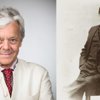
In search of Marcel Proust's lost health
A great writer, but also a weak person and a hypochondriac. That has been the usual image of Marcel Proust. But the pediatrician and literary scholar Carl Lindgren paints a partly different picture in a new book about the French master's life, health and attitude towards physicians.
-

Investigations against AstraZeneca: ”Chinese interests may be behind them”
Why are there several investigations against AstraZeneca employees in China right now? Life Science Sweden continues to seek answers.
-

Medivir CEO on upcoming study: ”It's about working together with others”
Medivir is a small company with a big task: to take its drug candidate, via extensive clinical studies, all the way to a patient group that currently lacks approved treatment alternatives. "We can't do that on our own – our entire R&D activities are about working together with others," says the company's CEO Jens Lindberg.
-

Hon är MSD:s nya svenska vd
Birgitta Wikman Erlandson har utsetts till vd för MSD Sverige där hon de senaste året varit affärsområdeschef för vaccinavdelningen.
-
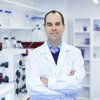
Xbrane enters licensing agreement with Indian generics giant
Swedish biosimilar developer Xbrane Biopharma and the Indian company Intas Pharmaceuticals have entered into a license and co-development agreement.
-
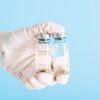
Roche’s Genentech terminates licencing deal with Norwegian biotech
Genentech is ending a license collaboration with Norwegian biotech Nykode Therapeutics regarding a clinical stage cancer vaccine program.
-

The new Swedish life science strategy – “It will consolidate Sweden as a leader”
Clinical trials and precision health are emphasised as key areas in the new national life science strategy.
-

AZ gets approval for drug targeting rare disease – it may reduce cortisone dependence
AstraZeneca’s drug Fasenra gets an expanded indication in the EU and is now approved as a treatment for the rare autoimmune disease known as Churg-Strauss syndrome.
-
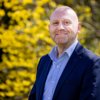
Lilly´s Nordic manager on Mounjaro launch in Sweden: "Patients deserve respect"
Another blockbuster diabetes and obesity drug has made its way into the Swedish market – with promises of a stable supply and availability for patients. “What we see is a significant unmet need, so we are expecting to have quite a good welcoming in the market", says Daniel Lucas, Managing Director Nordic Countries at the American pharmaceutical giant Eli Lilly.
-

”The importance of stratification in a statistician’s August kitchen”
Ingrid Lönnstedt writes about an experiment of her own at home and about what lessons can be learned from it, in a science column.
-

New large lab building in Lund inaugurated – here are the companies moving in
Medicon Village has received a new laboratory building. On Friday last week the building was inaugurated with a ribbon-cutting ceremony by Minister for Employment and Integration Mats Persson (L) and construction contractor Mats Paulsson.
-

A new life science cluster formed – “We are very strong in talent”
Stockholm and Uppsala’s joint life science cluster aims to be among the best in Europe. Pontus Holm, Life Science Coordinator for Region Stockholm, says the decision to create a joint profile for the two cities is strongly supported. He mentions that around 50 stakeholders were asked last winter if they were in favour of a joint cluster and that “the answer was a resounding yes”.
-

Lundabolag rekryterar ny vd
Lundabolaget Phase Holographic Imaging har rekryterat Anders Månsson som ny vd.
-
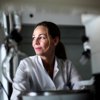
Her company is developing a new tablet form obesity drug
Obesity and diabetes are the primary targets of a new tablet treatment under development by Malmö-based Pila Pharma. The company’s ambition is to take on the billion-selling GLP1 analogues. ‘‘Basically, I expect all the beneficial effects that they have, but not the same side effect profile,’’ company founder Dorte X Gram said in an interview with Life Science Sweden.
-
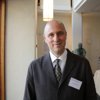
This years Nobel prize in medicine – “Changed the understanding of how genes are controlled”
This year’s Nobel Prize in Physiology or Medicine goes to the discovery that small RNA molecules, known as microRNAs, control how genes are regulated. Understanding the mechanism has changed our view of human biology and evolution, says KI Professor András Simon.
-

AstraZeneca to use American AI platform for cancer trials
In a collaboration AstraZeneca will use an AI model from Israeli-American biotech Immunai to streamline its clinical trials in cancer.